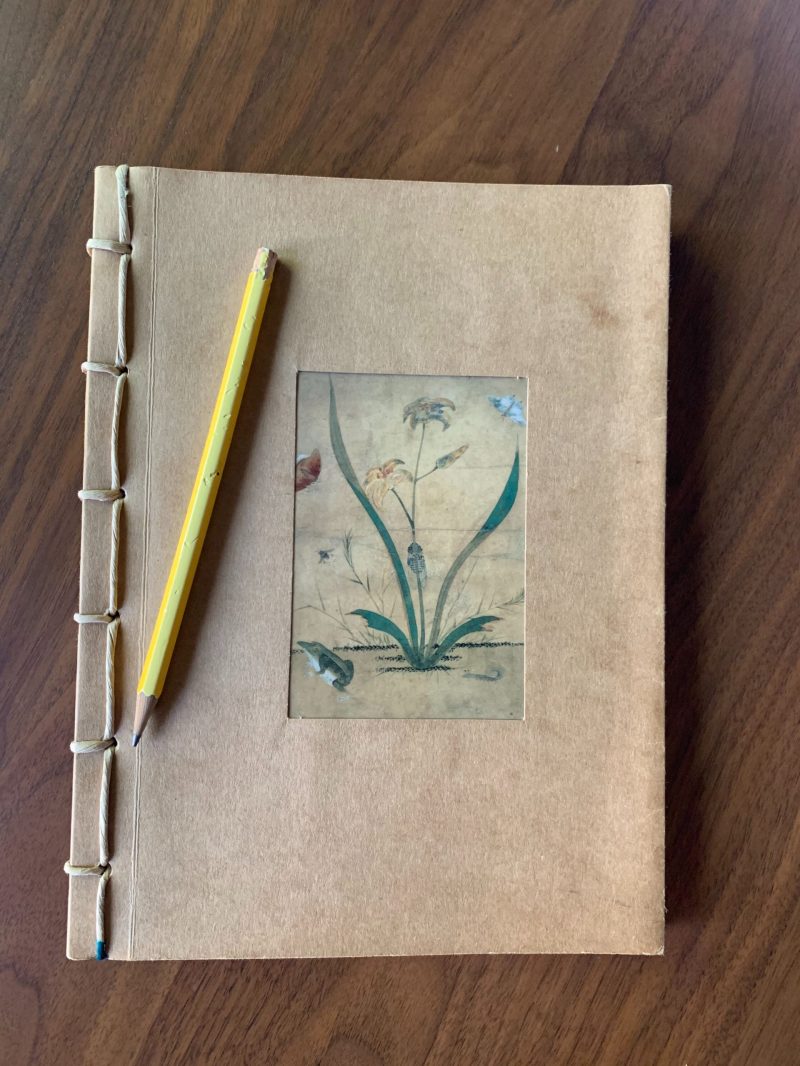I had tried to keep a notebook before. It never worked — it was as if my mind ran out of sentences. Diaries would trail off after a few weeks, and my thought fragments would transition to the Notes app. It felt burdensome to do more; unsheathing a notebook for a floating idea was too much. That is, until I read Joan Didion’s essay “On Keeping a Notebook.”
Didion did not reconstruct her day in her notebook, as I believed I should do. She wrote down disconnected details, unnecessary slivers of her life that only held meaning to her (a “dirty crepe-de-chine wrapper”). When she read it, her mind recreated the scene — a moment that swelled into a sort of reality beyond petty facts. She logged these facts whenever the scene struck her, not superimposed by any schedule or dates. I wanted that for myself.
My details are different than Didion’s, but they hold the same order. Whenever a moment pierces my stream of thought, I note it down. When my knee clicked while I was stretching, I opened up the notebook: “joints grinding as mortar and pestle.” When I noticed a fluttering crow, I wrote it down: “an object of tar, charred and angry.”
These thoughts are detached, a futile exercise of creativity. They will not be nonfiction scenes, as they were for Didion. But they do harbor some secret value, only accessible by me.
I used to sit in museum galleries and muse on paintings, and observe my environs as I biked to school. My eyes would settle on peculiar people, and my mind would shoot off a salvo of creative sentences. The simplest routines, the acts of observation, were moments of artistic reflection and clarity. Now, my routines are slashed to the very minimum, just movements within the household. I sit in my bedroom, poring over my computer for a daily average of 14 hours (how is that possible?). And the only place I can spar with my creativity is in my notebook.
The writings in the notebook memorialize thoughts I previously escorted out. They are peaks of artistic inclination, places where creative consciousness crosses the matter-of-fact mind. During my past routines, I regularly discarded these thoughts, and considered them only during dedicated writing periods. But, since I have been confined by shelter in place, I need more reminders of my creative humanity. I achieve that by writing all those moments down.
It’s curious to read the scrawlings back, too. I recognize what I like to observe — emotions, movements, beings. There’s an element of mobility to it, continuous change. Life is still in flux during societal stillness, and I want to write about it. This rereading unearths my personal definition of creative writing, which I could not understand before. I enjoy writing about texture, taste, color. I enjoy making comparisons. I love describing nature and anatomy more than anything. If creativity is an investigation of yourself, then your notebook is your evidence.
Of course, I’m also investigating other people and objects. I have to pay attention to the external world, to decenter myself and make room for other things. I can escape the traps in my psyche (perfectionism, overestimation, excessive drama) and be present. There is no judgement when I write in my notebook. They are private musings about the richness around me, without any calculation of their utility and worth. My notebook process is smooth and instinctual, and it is reserved for my enjoyment, not anyone else’s.
Without creative stimuli, we must stimulate ourselves and rejoice in it. Instead of dismissing random thoughts, we should nurse them and write them down. Otherwise, we start invalidating our artistry, which would truly put the world at a loss.
Contact Diana Piper at dianapiper ‘at’ gmail.com.
